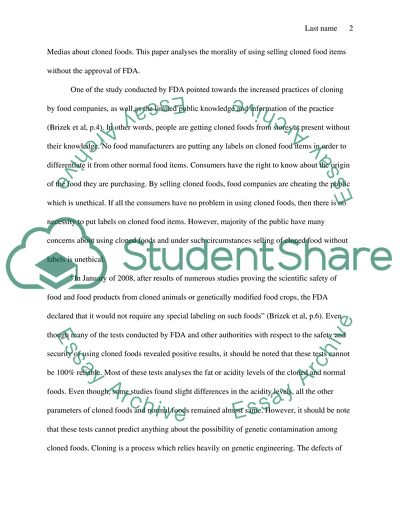Cite this document
(“Why cloning and selling meat without FDA approval is unethical Research Paper”, n.d.)
Retrieved from https://studentshare.org/family-consumer-science/1421257-why-cloning-and-selling-meat-without-fda-approval
Retrieved from https://studentshare.org/family-consumer-science/1421257-why-cloning-and-selling-meat-without-fda-approval
(Why Cloning and Selling Meat Without FDA Approval Is Unethical Research Paper)
https://studentshare.org/family-consumer-science/1421257-why-cloning-and-selling-meat-without-fda-approval.
https://studentshare.org/family-consumer-science/1421257-why-cloning-and-selling-meat-without-fda-approval.
“Why Cloning and Selling Meat Without FDA Approval Is Unethical Research Paper”, n.d. https://studentshare.org/family-consumer-science/1421257-why-cloning-and-selling-meat-without-fda-approval.


